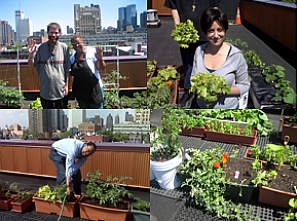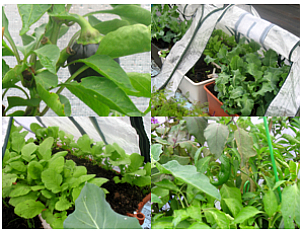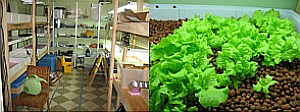

Fountain House Roof Garden, New York
By Elliot Madison
“To know I had a part in growing my own food changed me from being a ‘consumer’ to a ‘producer.’ I know if I can do that, there isn’t much I can’t do.” –Laurel, a 30 year-old woman with bipolar disorder
Fountain House is one of the world’s leading mental health organizations, providing employment, educational and housing opportunities to people living with serious mental illness. Over the past year it has been committed to an innovative initiative called “Closing the Loop,” in its on-going effort to help members (individuals with an Axis 1 diagnosis) find recovery.
One part of this vision includes an investment in sustainable urban agriculture, headed up by the organization’s Horticulture Unit. The Horticulture Unit is made up of members and social workers who work together to grow food for the 300 or so members who attend Fountain House each day. Partnering up with experts in the field, they have started supplying the Culinary Unit’s salad bar from gardens on the roof of a local mental health residence and in a disused office.
Staff and members meet each day to organize the work; this might include watering the vegetables on the roof, checking on the seedlings, monitoring the flow of water to the hydroponic system or rinsing the bean sprouts they grow in drawers that once housed files. Though there is little doubt many people find working with plants mentally rewarding, this is not your typical biophilic therapy – the goal is to produce healthy, organic food for the clubhouse members, many of whom live well below the poverty line.
Fountain House is planning to expand the rooftop garden, doubling its size and adding cold frames to extend the availability of fresh, delicious vegetables throughout the year. It will also add another 6 tanks to its existing 14 “raft” hydroponics tanks.
Most members and staff have no experience in growing crops, but by working together as a team, they are not only able to produce food for their community, but they create a collegial environment of mutual dependency which facilitates members moving down their path toward recovery. Fountain House knows that good, locally-produced, organic food is not only beneficial for healthy bodies but healthy lives.
Related reading:
Fountain House
Home Page


